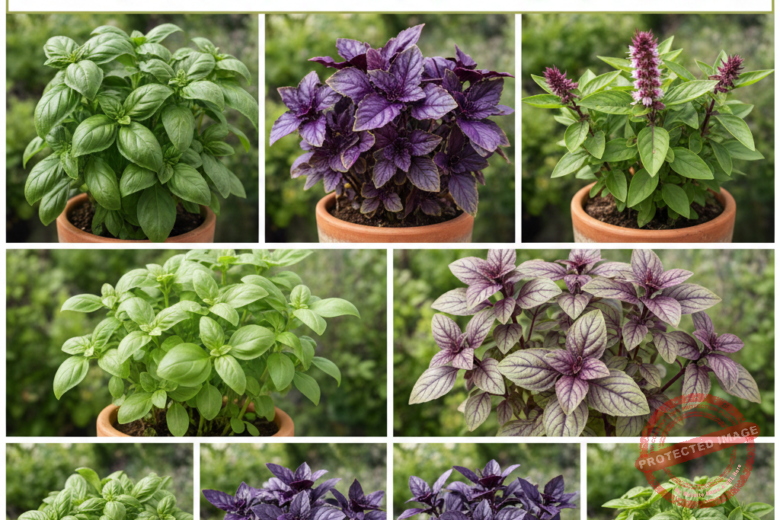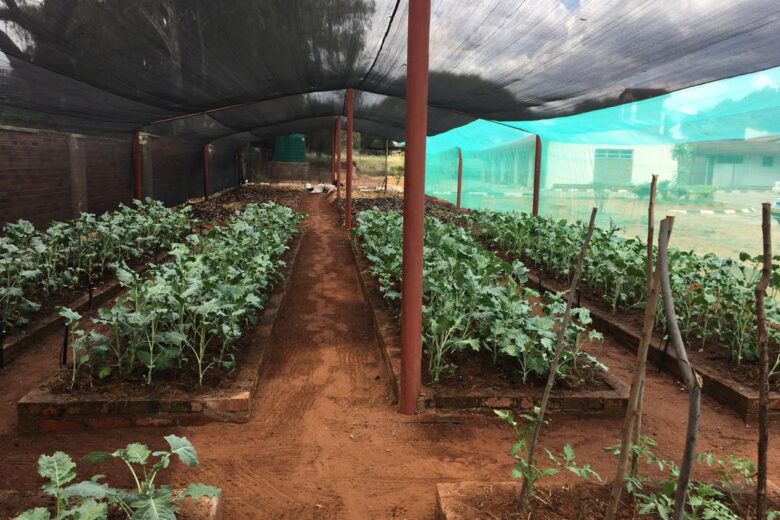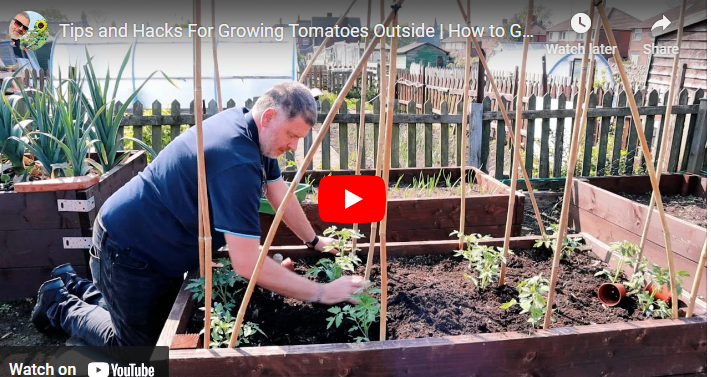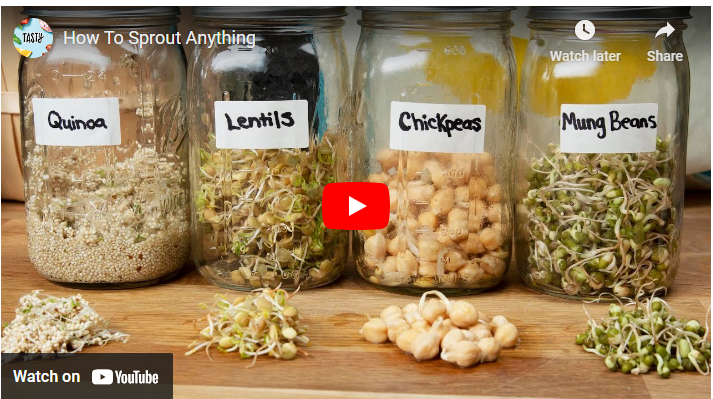Tomatoes farming in Ghana- Tomatoes is one of the fastest growing nutritious and rich in vitamins, minerals, and other beneficial health benefits. There is a great demand for these tomatoes, which has prompted farmers to cultivate this crop in Ghana.
The ability to start tomato farming using local resources enables a cheap source of income for farmers that can be used to feed their families without any financial constraints.
The key to successfully growing tomatoes in Ghana is to start by getting farmland, purchasing tomato seeds, preparing the farm beds/ridges, transplanting the seeds, providing support, irrigation, mulching, and pruning.
[Beginners Guide] How To Start Tomatoes Farming In Ghana 2022
Before you venture into tomato farming in Ghana, you have to prepare adequately so that you will get the optimum farming result. That is why we have prepared this guide to help you start successful tomato farming in Ghana in 2022.
Read Also: [Easy Tips] How To Start Growing Cashew In Ghana
Step 1: Choose a Farm Site
You will need land for the tomato farm. As such, the key to successfully growing tomatoes in Ghana is choosing the site well. Not all locations have great soil or rainfall, so do some research before you start.
Read Also: How To Grow Tomatoes In Grow Bag [Expert Tips]
Choose a location with plentiful sunshine, fertile soil, and a temperate climate, so your seedlings can grow strong and maintain their genetic integrity.
Step 2: Purchase Quality Tomato Seeds
The quality of tomato seeds selected is important in your tomato farming adventure. You can visit an agro shop or a professional husbandry farmer to get quality seeds or already sprouted tomato plants that you can plant on your farm.
Read Also: [Beginners Guide] How To Grow Beans In Ghana 2022
Step 3: Preparing the Nursery Farm
The best planting method is transplanting. The best period to prepare your farms is in March/April when the rain is just beginning in most regions of the country.
Tomatoes work very well in most soil types in Ghana but best in black loose loamy soil. Prepare the land by clearing the grasses and rubble, and loosen the soil using a hand trowel and hoes.
Remove the seeds from the tomatoes and sprinkle them on the prepared soil.
You can cover it with dry grasses to minimize the loss of moisture from the soil and prevent birds and fowls from nibbling off the tomato agricultural seeds.
Within 5-7days you will observe it germinating. Wait about another five days before you remove the dried grasses to allow for healthy development. Allow it another month before transplanting.
Step 4: Transplant to Farmland
Now you transplant the already sprouted plant onto the farmland where they would grow to maturity and production.
Read Also:
You must have prepared the farmland just as indicated in the step above earlier to make it healthy for the plants to germinate. Should in case your farmland is too big that you can’t complete the transplanting alone, hire laborers according to your need.
Make a planting hole on the farm bed, insert the seedling into the hole and cover it with loose soil.
Note, that it is best for tomato plants to be transplanted the same day you pulled them from the nursery to minimize dehydration and exhaustion.
Watch This Video To See the Live Section Of Tomatoes Farming
Step 5: Plant Management
After planting your tomatoes seedling on the farm, that is not the end because you have to manage the plants so they can germinate properly
Providing support
Because tomato stem is not strong and flexible, it is important to provide support by putting poles in between the farm beds to support the stems. This will further enhance production and won’t allow the plants to die off quickly.
Irrigation and Mulching
The next step is providing your tomato plants with constant water during their growing stage which can be done by drip irrigation or overhead irrigation methods.
Also, in the case of excess sunlight, you have to protect the soil from losing moisture by covering the farm bed using dried weeds, or polyethylene materials.
Fertilizer Application
Use fertilizer to help restore the soil nutrients stolen by the weeds.
To develop successfully, tomatoes need nitrogen, phosphorus, potassium, potash, calcium, and magnesium, along with other trace minerals.
It’s always ideal to have your soil tested to check for fertilizer levels and pH levels.
Use a fertilizer that gives those key elements – N-P-K ratio fertilizer can be extremely helpful for tomatoes.
Disease and Pest Control
You need to weed the farmland to remove unwanted plants that contend for space and nutrients. Be careful not to uproot the edible plants alongside unwanted plants.
More so, you need to spray herbicides and pesticides that will keep pests at bay and also protect the plant from being infected.
Step 6: Harvesting
The first harvest starts three months after planting. That means if you plant by April, you should be anticipating your first crop to start by June/July.
From then, it will run into November/December. Interestingly, tomatoes continue to reproduce till the dry season when the plant will die off due to the searing heat.
Watch This Video To Know The Common Error When Planting Tomatoes In Ghana
Is Tomato Farming Profitable In Ghana?
Tomato production is one of the key agricultural activities in Ghana. Despite average yields, tomato farming in Ghana is highly profitable typically because of its great demand for everyday consumption.
When Can I Plant Tomatoes In Ghana?
The best period to plant tomatoes is from late December through April/May.
Where Are Tomatoes Grown In Ghana?
Tomatoes are primarily grown in seven of Ghana’s ten regions. Upper East region, Northern region, Brong Ahafo region, Ashanti region, Eastern region, Greater Accra region, and Volta region are among these production regions.
How Much Is A Box Of Tomatoes In Ghana?
Presently, a box of tomatoes in Ghana is between GHC 800 to GHC 1000.
How Much Is A Ton Of Tomato?
The cost of tomatoes in Ghana per ton is roughly GHC 9000.
How Much Does Tomato Cost?
The price of tomatoes in Ghana is approximately GH₵36 per kg
How Many Boxes Of Tomatoes Can You Get Per Acre?
The boxes of tomatoes you can get per acre are 4000 boxes.
How Do Tomatoes Farmers Make Money?
Tomatoes Farmers Make Money by selling their tomatoes in a market. Most tomato farmers ensure they grow more tomatoes than they can consume and then sell the rest in the market to make a decent living.
Also. they use different forecasting methods to forecast the market price of a specific tomato crop based on various factors such as demand, supply, weather, and climate.
How Many Boxes Of Tomatoes Make A Hectare?
The boxes of tomatoes you can get for 1 hectare is approximately 11000. This is quite a huge task for one farmer, as it requires nothing less than 20 to 25 farmers to carry out the farming activities.
What Are The Varieties Of Tomatoes In Ghana?
The varieties of tomatoes in Ghana include Grape tomato, Red Beefsteak tomato, Cherry tomato, Cocktail tomato, Roma tomato, and Sauce tomato.
What Is The Average Yield Of Tomatoes Per Acre?
Up to 30 tons of fresh tomatoes can be produced on average from an acre of tomato plants.
How Many Tomatoes Can You Harvest From One Plant?
You can get anywhere between 20 to 90 tomatoes from a single plant, depending on the size of the tomatoes.
How Do You Prepare Land For Tomatoes?
The steps to prepare land for tomatoes farming include:
- Land clearing. This involves the removal of weeds and debris from the farmland using farm tools such as hoes, rakes, cutlass, trowels, etc.
- Spray the Farmland with pesticides and herbicides to stop weeds from re-germinating.
- Apply manure (typically dry poultry dung) on the farmland to enrich the soil nutrient.
- water the farmland
- Prepare farm ridges
How Long Do Tomato Plants Live?
When cultivated properly, a tomato plant normally only survives for one growing season (6 to 8 months). However, there is a tendency for the tomato plant to survive for 2 to 3 years if properly cared for.
How Do Onions Grow In Ghana?
The ideal places to cultivate onions in Ghana are lowlands with irrigation, or close to dams and river valleys.
All you need to start growing onions in Ghana is prepared farmland, organic fertilizer, a variety of onions seedlings, a well-prepared nursery, transplanting, weeding and pest control, and harvesting.
Is Roma VF Determinate or Indeterminate?
Roma VF is an open-pollinated paste variety, a large, determinate plant with excellent leaf cover, and disease tolerance. The fruits are almost all ready to harvest at the same time.
Tomato-Growing Areas In Ghana
Tomato growing areas in Ghana include the Brong Ahafo region, Ashanti region, Eastern region, Greater Accra Region, Upper East region, Northern region, and Volta region.
Tomato Production In Ghana Mofa
The Ministry of Food and Agriculture (MoFA) has supported tomato production in Ghana. MoFA has launched a new program to boost tomato production. The Ministry’s goal is to have a positive impact on the country’s economy, especially in villages where farmers grow tomatoes as a cash crop.
The Ministry aims to provide technical assistance to farmers who are transitioning their tomato production into profitable livestock products.
Dry Season Tomato Farming
In Ghana, dry season tomato farming is difficult, but not impossible. Dry season tomato farming includes acquiring farmland, soil preparation, selecting healthy tomato seeds, irrigation (particularly drip irrigation) and mulching, Nursery preparation, transplanting Fertilizers (or Manure) applications, staking, disease, and Pest Prevention and Control, and harvesting.
Tomato Production Guide
Tomato production in Ghana today is a large-scale business activity that offers employment to a lot of people, especially women and youth. Tomato remains as popular as ever, despite challenges such as diseases and poor management practices.
Tomato production in Ghana is turning into an important industry with great potential, where innovative solutions can be formulated to enhance productivity and profitability.
This tomato production guide has also noted several steps including all the needed information that will help tomato farmers in Ghana improve productivity.
Tomato Production in Ghana PDF
In Ghana, tomatoes are one of the most important fruit crops which is produced commercially using modern farm inputs. Tomato production in Ghana PDF gives a concise account of tomato production in Ghana.
It also provides information on growing practices and quality analysis of the tomato crops grown by local farmers at a non-commercial scale, along with recommendations for improvements in tomato cultivation and postharvest management strategies.
Tomatoes Season in Ghana
Tomatoes season in Ghana is usually from late December through April/May,
Conclusion
If you have always dreamed of becoming a farmer, then starting a tomato farm would be an amazing thing for you. The benefits are endless. With the right knowledge and equipment, you can plant fresh tomatoes year-round, thereby increasing your sale.




I am very interested to invest in Tomato production project.
I need coinvestment in greenhouse farming.
Tomato high yield planting seeds company for the Ghanaian market.
I wish to represent and sell tomato project accessories from manufacturing companies worldwide. Expeciallh planting seeds, minerals, etc.
Thank You Morgan for your comment, I really appreciate that.
To get a co-investor on your intending area, you may need to drop a message on our facebook group, there are lots of farmers and investors on the page who may be interested. To like our facebook page and make your posts, kindly go to Facebook and search for agrolearner.com, then like the page, you may not drop your request, there are peopel who will se your messages.
I have developed much interest in tomatoes farming which make me follow your information all time. I need more ideas on how to start and become one of the best.
I am glad you follow our farming tips we published here on Agrolearner.com to help upcoming farmers and practicing ones.
To answer your questions, there are majorly three phase to tomato farming, first is the nursing stage, second phase Is the land preparation and suitably making your soil and Ridges to transplant your seedlings from the nursery, and third is stage is caring for your plants by spraying every week with pesticide and fungicide, applying fertilizer and staking your tomato till it reach maturity.
As the simple as I put it, it may require you to be on the field to understand potential challenges and difficulties not narrated here, but when you practice it, you will get to find the problem, you may then drop it here, I will offer guide base in my experience doing it.
Because for everything one plan to start in life, one need to overcome the stage of thinking on how to do it, to get to the state of start doing it with relative information with you. With this, you may seek for help on every situation you face while growing your crop.
So what I will charge you with is hit the ground running! If there is anything you’re not clear on, drop it here, I’m always around to offer my guide on how you can go about overcoming such challenges…